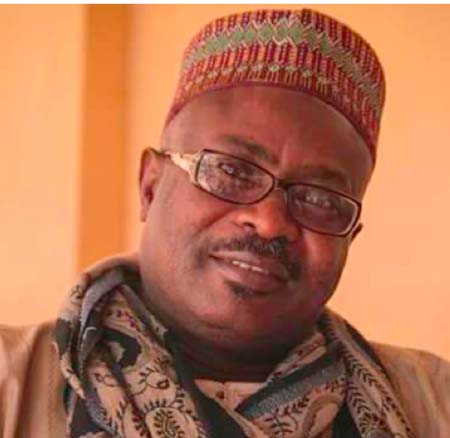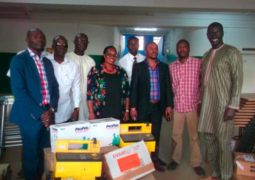
OVERVIEW
The
Gambia has always been known as a peaceful country of rich and diverse cultural
heritage. A land of dialogue among ethno-linguistic groups, a land of cultural
symbiosis that binds western and eastern (Arabic) cultures merging and blending
with the indigenous culture. This cultural pattern could perhaps be best
described as the ‘triple heritage’, to borrow the phrase of the late Professor
Ali Masrui. This is a land were intermarriages between ethnic and religious
groups help strengthen family ties. Culture is not merely singing and dancing
as most laymen or even some so-called educated Gambians believe; culture
exceeds that. Gambian culture encompasses the whole range of traditional,
political, social, religious, artistic, literary and economic values. However,
this beautiful and unique culture that earned us the name ‘smiling Coast of
Africa’ has been exploitatively eroded and bastardized by former president
Yahya Jammeh. He had used the media as a vehicle for misrepresenting our true
identity and diverse culture. Our state owned media outlets particularly GRTS
both radio and television were utilized as vehicles for promoting only Yahya
Jammeh’s image and barbaric agenda of divide and rule to perpetrate his reign.
GRTS, instead of uniting us through meaningful, educative and entertaining
programs, served as Yahya Jammeh’s platform for insulting our intelligence and
tearing our families apart. We have all witnessed family members being used
against each other for want of position, material wealth or other gains; thanks
to the greed and hypocrisy of some of us, for accepting to be exploitatively
used. Our beautiful culture of peace, love and unity has been infected in one
way or the other by Yahya Jammeh’s toxic agenda. Now that he is gone, it is
time to heal our wounds and continue with our lives. There is therefore the
urgent need to give a critical look at ourselves, our culture and how it has
been bastardized and misrepresented on the media and the ramifications.
Outsiders without background knowledge of who we are, has mistaken us for who
we are not based on what they see and hear from GRTS.
Our
situation calls for a cultural reorientation program that would not only
reconcile families, but help in rebranding our image as a peace loving people
of cultural symbiosis who are united in diversity. This could be done through a
carefully designed educative and cultural re-orientation program that nurtures
reconciliation and unity among us. Therefore the Minister of Culture, policy
makers and all duty bearers in the cultural sector of the new Gambia should
bear in mind these factors and cleverly design programs aimed at re-branding
our cultural identity. Of course the in-put of the media and the education
sector respectively in this endeavor cannot be overemphasized.
‘Education’
and ‘culture’ are good bed fellows in the drive to re-orientating or creating
awareness in people, but the vehicle for carrying home the message proper is
the media. Of recent times, newly coined words like ‘edutainment’ and
‘infotainment’ are used in media circles, thus manifesting how education and
culture are intrinsically linked.
Culture
is interwoven in every facet of our lives. There is a cultural dimension to
education; in-fact there is a cultural dimension to whatever we learn in our
schools; be it History, language or even the advanced sciences. If this
statement is contextualized, understood and appreciated, then our perception of
culture will change from what it is, (ie. singing, drumming and dancing) to
what it should be. Central in our pursuit for cultural development is the
introduction of cultural education in our school curriculum with a view to
inculcating in the hearts and minds of our citizens particularly the youths;
that sense of belonging and patriotism, self-esteem, ‘’jom = jomba’’, ‘’ngor’’,
unity and brotherhood. The need to preserve and safeguard these intangible
cultural virtues that bind us together as a civilized and dignified people
cannot be overemphasized.
Such
an endeavor is better approached by the two sectors; education and culture
respectively whose policies should reflect such ideals. Such a move would add
weight to the African Union’s call for African countries to pair ‘Education’
and ‘Culture’ under one ministry so as to nurture in our people a truly unique
identity and sense of Pan-Africanism. Reference to our situation, where such a
pairing is not feasible due to other factors, I suggest that ‘culture’ be
separated from ‘tourism’ and a ministry for culture be created to ensure better
performance in the development of Gambian arts and culture. In the event such a
proposal, due to budgetary implications is not feasible, then I advise that the
Gambia Tourism Board whose main product for marketing and attracting tourists
to the Gambia is ‘culture’; be compelled to reciprocate or give back to the
ministry’s arm responsible for culture the NCAC, atleast one or two dollars
from the ten dollars tourism levy paid by each visiting tourist to the Gambia.
Culture in the Gambia has been treated for too long with less respect and
consideration, thus classified as an entity that has no significant role in
national development. It is regarded by most as a fund-consuming and not a
fund-generating entity. Whilst such a notion may be baseless, paradoxically it
could be right, because truly culture does not have a role in national
development; rather it is ‘development’ that seeks to develop ‘culture’. The
success or significance of culture in national development cannot be measured
in monetary terms; culture molds the people for society. Once this is
understood by all duty bearers in the cultural sector, then we can easily
nurture appreciation for our arts and crafts, and as well further improve our
cultural repertoire to better showcase our culture. It is when we the Gambians
appreciate and embrace our culture that we can attractively showcase it for
others to appreciate.
Arts
and culture has to do with the inner-self and aesthetics; it must be felt and
lived. The approach to realizing such an idea is to ensure that subjects taught
in our schools are pedagogically designed to simultaneously inject in the child
that sense of belonging that makes him the type of citizen who can be entrusted
with the future of his country. There is more to education than academic
credentials; it requires good cultural orientation that guarantees good manners
and comportment to humanely face social challenges.
SUGGESTIONS
To
effectively utilize GRTS in this endeavor, there is the need to review their
program content and repertoire in order to eliminate or at least minimize
mediocrity in program presentations, hence ensure professionalism that would
captivate huge viewers.
Cleverly
utilize GRTS both radio and television as vehicles for promoting the ideals and
developmental aspiration for the new Gambia through strategically designed
‘info-tainment’ and culturally educative programs that would appeal to the
psyche of Gambians, particularly the youths to ensure positive cultural
reorientation.
Create
Talk-Show programs / discussions that would encourage divergent views on
pertinent socio-political issues affecting the Gambia.
Get
GRTS and RTS of Senegal to renew collaboration and revive the once popular
“Chossani Senegambia” program and utilize the program as vehicle for promoting
Senegalo-Gambian relations.
Through
diplomatic channels, create a Senegambia Council of Elders whose advises and
guidance as wise men of wisdom would help strengthen Senegalo-Gambian
relations. This body should be accorded the opportunity to meet both presidents
atleast once a year.
This
document is not by any means exhaustive; rather it is a skeleton one that seeks
to provoke action by the new government to critically look at the pros and cons
of the subject matter whilst challenging them to endeavor to right the wrongs
of Yahya Jammeh through cultural reorientation programs.
Tijaan
Kamara, is a multi-talented artist, creator, administrator and disseminator of
arts and culture; a former art teacher, lecturer of Artistic Traditions at the
UTG and former Board Chairman, National Centre for Arts and Culture.


